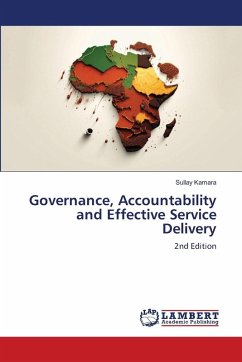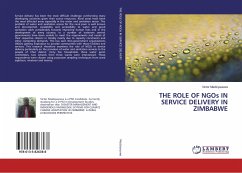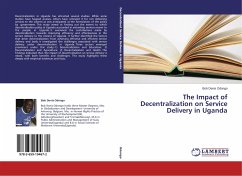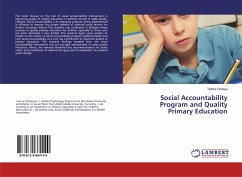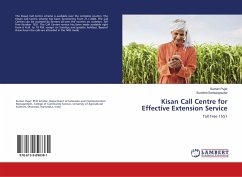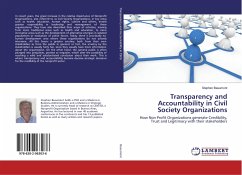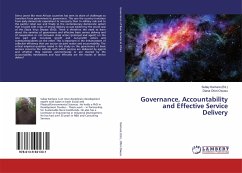
Governance, Accountability and Effective Service Delivery
Versandkostenfrei!
Versandfertig in 6-10 Tagen
47,99 €
inkl. MwSt.

PAYBACK Punkte
24 °P sammeln!
Sierra Leone like most African countries has seen its share of challenges to transition from government to governance. This saw the country transition from early democratic experiment to one-party then to military rule and to the painful rebel war and finally to the contemporary democratic system that is faced with crises of service delivery as was evident by the worst case of the Ebola Virus Disease (EVD). There is therefore the need to learn about the varieties of governance and effective basic service delivery and of cooperation or not between state actors (principal and agent) on the one p...
Sierra Leone like most African countries has seen its share of challenges to transition from government to governance. This saw the country transition from early democratic experiment to one-party then to military rule and to the painful rebel war and finally to the contemporary democratic system that is faced with crises of service delivery as was evident by the worst case of the Ebola Virus Disease (EVD). There is therefore the need to learn about the varieties of governance and effective basic service delivery and of cooperation or not between state actors (principal and agent) on the one part and non-state (profit and non-profit) actors and communities/clients on the other. This is important in the enhancement of collective efficiency that can accrue via joint action and accountability. The critical empirical question raised in this study on the governance of basic services concerns the latitude with which services are delivered by agents and whether they operate autonomouslyor are steered by the accountability mechanisms and how effective are the modes of service deliver?



